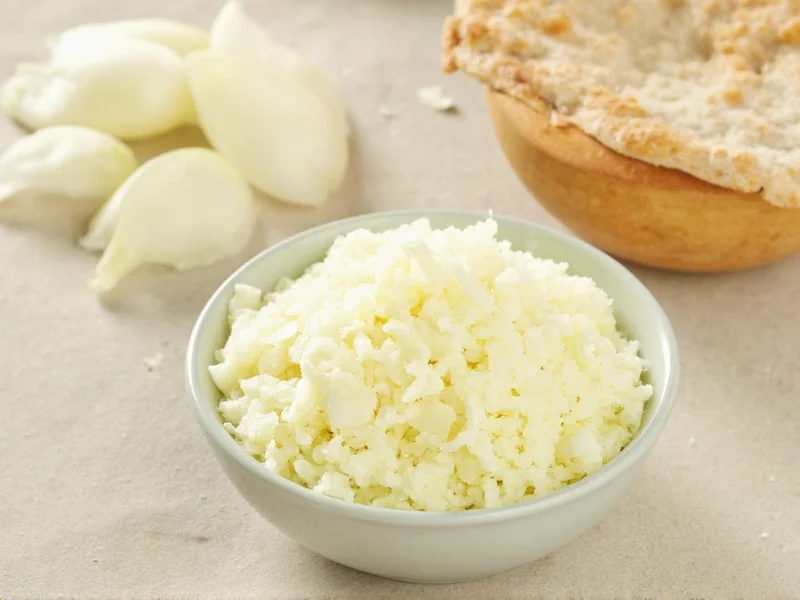When you're mid-recipe and realize you're out of onion flakes, knowing reliable alternatives can save your dish. Onion flakes provide concentrated onion flavor with subtle sweetness and mild crunch, making them valuable in coatings, dressings, and baked goods. Understanding what makes them unique helps identify the most appropriate replacements for your specific culinary application.
Understanding Onion Flakes and Their Culinary Role
Onion flakes are dehydrated, thinly sliced onion pieces that rehydrate during cooking. They offer consistent flavor distribution without the moisture of fresh onions, making them ideal for spice blends, dry rubs, and packaged food products. Unlike onion powder, which is finely ground, flakes maintain some texture while delivering concentrated onion essence.
Top 5 Substitutes for Onion Flakes Ranked by Effectiveness
Not all onion alternatives work equally well in every situation. Consider these factors when choosing your substitute:
| Substitute | Best For | Ratio | Flavor Notes |
|---|---|---|---|
| Dried minced onions | Baking, casseroles, meatloaf | 1:1 replacement | Closest texture match, slightly stronger flavor |
| Onion powder | Dry rubs, spice blends, sauces | 1/4 tsp powder = 1 tbsp flakes | More intense flavor, no texture |
| Fresh onions (finely chopped) | Sautéed dishes, soups, stews | 1/4 cup fresh = 2 tbsp flakes | Adds moisture, stronger raw flavor |
| Shallots | Delicate sauces, dressings | 1/4 cup minced = 2 tbsp flakes | Sweeter, more complex flavor |
| Leeks (white part) | Creamy dishes, potato salads | 1/3 cup minced = 2 tbsp flakes | Milder, grassier flavor profile |
Special Considerations for Specific Recipes
Certain dishes require more thoughtful substitution approaches:
Baking and Dry Mixes
When substituting in breads, crackers, or dry seasoning blends, dried minced onions work best as they maintain the intended texture. Onion powder can clump in dry mixes unless thoroughly sifted with other dry ingredients. For gluten-free baking, consider using freeze-dried onion granules which rehydrate more predictably.
Moisture-Sensitive Applications
In recipes where excess moisture affects texture (like meatloaf or burger patties), reduce fresh onion quantities by half and squeeze out excess liquid. Alternatively, sauté fresh onions first to evaporate moisture before incorporating into your recipe as an onion flakes alternative.
Dietary Restrictions and Flavor Modifications
For low-sodium diets, avoid onion salt substitutes and opt for fresh or dried alternatives. Those with onion sensitivities might consider asafoetida (hing) - use just 1/8 teaspoon as it has a strong sulfurous aroma that transforms when cooked. For milder flavor profiles in delicate sauces, shallots provide a sophisticated onion substitute for onion flakes without overwhelming other ingredients.
Pro Tips for Successful Substitution
Professional chefs recommend these techniques when replacing onion flakes:
- Rehydration method: For dried alternatives, mix with 1 tablespoon warm water per 2 tablespoons substitute and let sit for 5 minutes before using
- Flavor balancing: If using stronger substitutes like onion powder, add a pinch of sugar to balance the intensified flavor
- Timing matters: Add fresh onion substitutes later in cooking than you would onion flakes to prevent overcooking and bitterness
- Texture adjustment: For applications requiring the slight crunch of onion flakes (like topping casseroles), toast dried substitutes in a dry pan for 2-3 minutes before use
Common Mistakes to Avoid
Many home cooks make these errors when substituting onion flakes:
- Using equal volumes of onion powder without adjusting (results in overpowering flavor)
- Not accounting for additional moisture from fresh alternatives
- Adding substitutes at the wrong cooking stage, causing flavor degradation
- Forgetting to adjust salt levels when using onion salt as substitute for onion flakes
- Using frozen onions without proper thawing and draining
Creating Your Own Onion Flake Alternative
For the most authentic substitute for onion flakes, make your own by thinly slicing onions, tossing with 1 teaspoon cornstarch per medium onion to absorb moisture, then dehydrating at the lowest oven setting for 2-3 hours until crisp. Store in an airtight container for up to 6 months. This homemade version provides superior flavor control compared to commercial products which often contain anti-caking agents.
When Substitution Isn't Ideal
Some recipes truly require onion flakes for proper texture and flavor release. In professional applications like commercial spice blends or certain baked products, the specific particle size of onion flakes affects how flavor distributes during production. For critical culinary applications, consider ordering dehydrated onions online rather than substituting if timing allows.











 浙公网安备
33010002000092号
浙公网安备
33010002000092号 浙B2-20120091-4
浙B2-20120091-4